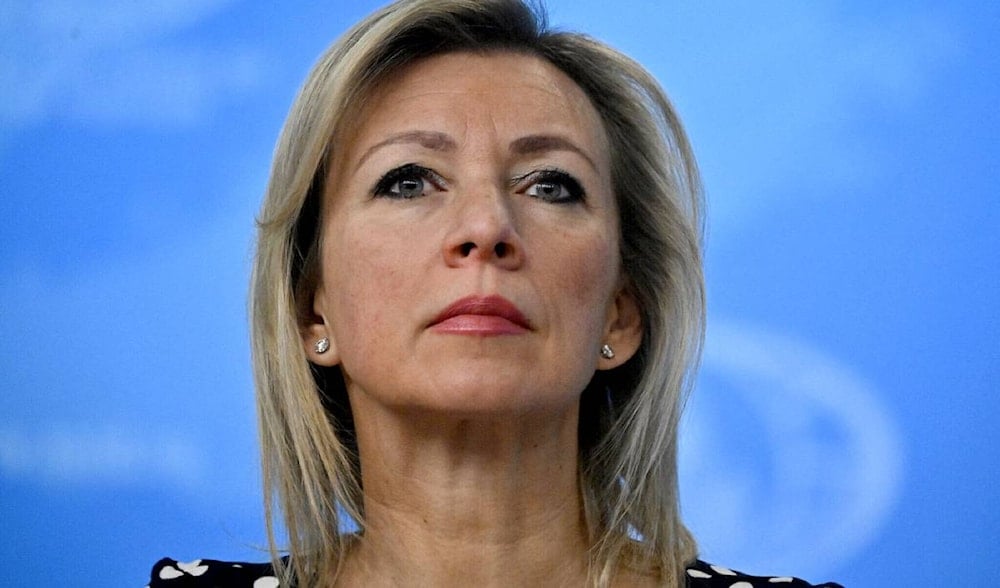There will be a response: Zakharova on US sanctions on Russian media
Russia will analyze the imposed sanctions on its two large media companies RT and Rossiya Segodnya, and then determine the necessary retaliatory countermeasures.
-

Maria Zakharova, spokeswoman for the Russian Foreign Ministry in Moscow, January 19, 2024. (AFP)
Russia will respond to US sanctions targeting Russian media and all its other adversarial actions, Foreign Ministry spokesperson Maria Zakharova said on Tuesday.
"I would like to emphasize that we are going to respond, there will be a response, and they will have to understand that no action against our country will remain unanswered," Zakharova said on the Solovyev LIVE show.
The diplomat added that Russia will analyze the imposed sanctions on its two large media companies RT and Rossiya Segodnya, and take retaliatory countermeasures.
Sanctions on RT and Rossiya Segodnya
The US Department of the Treasury announced sanctions against RT Editor-in-chief Margarita Simonyan and her deputies Anton Anisimov and Elizaveta Brodskaia on September 4.
The news website's Deputy Director of English-Language Information Broadcasting Andrey Kiyashko, Digital Media Projects Manager Konstantin Kalashnikov, and numerous other employees were also added to the sanctions list.
US authorities charged Kalashnikov and her fellow colleague Elena Afanasyeva with money laundering conspiracy and Foreign Agents Registration Act (FARA) violations.
The US State Department also implemented stricter regulations for Rossiya Segodnya and its subsidiaries, deeming them as "foreign missions." Essentially, the company is obligated under the Foreign Missions Act to notify the department of all employees working in the US and disclose all their owned properties.
US authorities also announced restrictions on issuing visas to individuals believed to be "acting on behalf of Kremlin-supported media organizations." However, the Department of State did not reveal the names of the individuals subject to the new restrictions.
State Department spokesperson Matthew Miller stated that the new regulations are not targeted to specific Russian journalists but, rather, personnel working in the targeted media firms who are allegedly involved in "covert activities."
EU halts broadcasting activities of four Russian media outlets
In late May, the Council of the European Union announced its decision to suspend the broadcasting activities of four Russia-associated media outlets within the EU, namely Voice of Europe, RIA Novosti, Izvestia, and Rossiyskaya Gazeta, citing their alleged role in spreading and supporting "Russian propaganda" and "aggression against Ukraine."
Commenting on the ban, Russia’s State Duma Chairman Vyacheslav Volodin called out the EU for censoring alternative opinions and restricting freedom of speech to deceive citizens.
"The Council today decided to suspend the broadcasting activities in the EU of four additional media outlets, which spread and support the Russian propaganda and war of aggression against Ukraine: Voice of Europe, RIA Novosti, Izvestia, and Rossiyskaya Gazeta," the council wrote in a document.
On Telegram, Volodin called the move a sign of the EU “to close access to objective and reliable information” for residents of member states, adding, “the policy of double standards has become an integral part of European structures” as they only “talk about freedom of speech, but do not tolerate it in reality.”

 3 Min Read
3 Min Read








